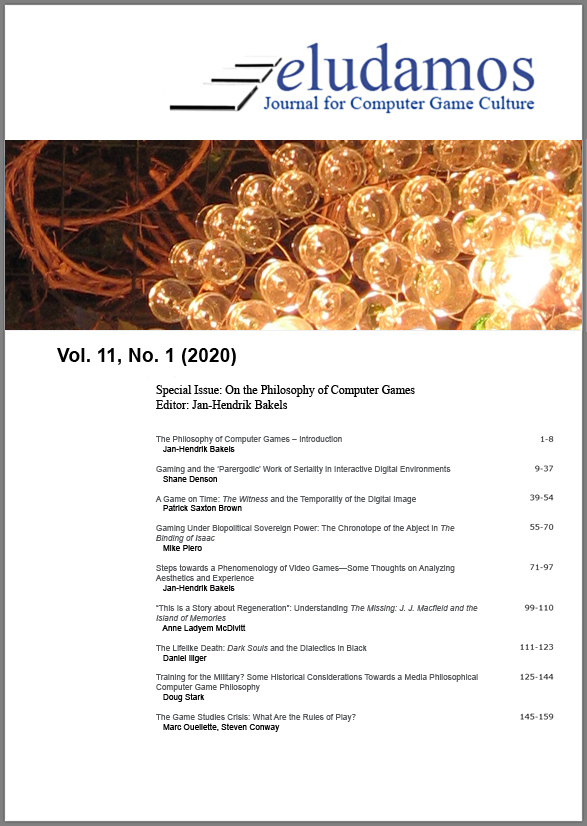Training for the Military? Some Historical Considerations Towards a Media Philosophical Computer Game Philosophy
DOI:
https://doi.org/10.7557/23.6359Keywords:
military, training, cybernetics, game history, embodimentAbstract
It behoves a media philosophical appraisal of the computer game—invested as media philosophy is in how media engender modalities of thought — to grapple with the computer game’s heritage. Specifically, the essay addresses an issue raised by attention to the computer game’s historical intertwinement with the military and industry: the extent to which these cybernetic machines, overdetermined by their techno-epistemic conditions, continue to perpetuate the ways of thinking from which they derived.
The first section of the essay reconstructs parts of this history, drawing primarily on Claus Pias’s computer game genealogy: Computer Game Worlds (2017). It pays particular attention to how the prehistory of time-critical action games reveals their close relationship with and tacit optimization of player pre-reflective perceptual and sensorimotor capacities.
The second section considers the lasting implications of the computer game’s historical a priori vis-à-vis their propensity to train their users. It engages with Patrick Crogan’s argument in Gameplay Mode (2011) that computer games are the “reproduction rather than simply the ‘product’ of […] Cold War mentality” and foregrounds his claims as important considerations for any attempt to think media philosophically with and through the medium (2011, p.105).
That said, the essay concludes recouping the computer game by way of the very training function it appears condemnable for. Drawing on Mark Hansen (2000), my contention is that Pias and Crogan place in relief what I figure as a creative consequence of computer game play with implications for media philosophy: brokering our corporeal, pre-reflective adaptation to and, thus, agency within our contemporary lifeworld. It is by virtue of, not in spite of, computer games cybernetically working on us that they potentiate ways of thinking about and living in digital culture.
Publication Facts
Reviewer profiles N/A
Author statements
Indexed in
-
—
- Academic society
- N/A
- Publisher
- Septentrio Academic Publishing








